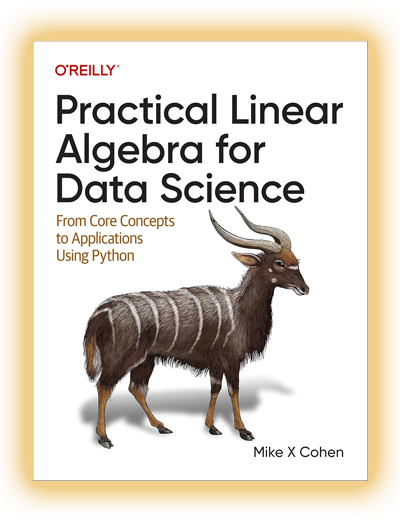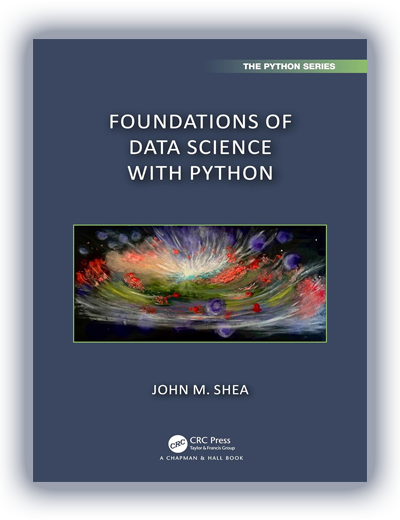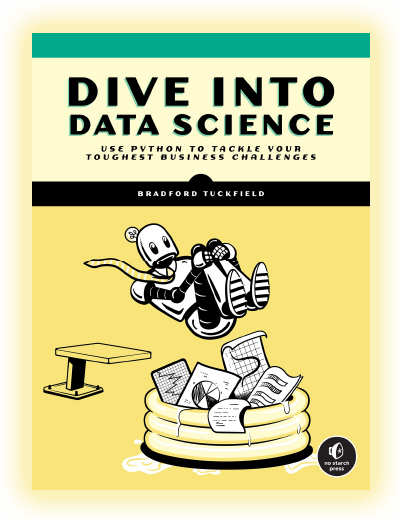Linear algebra is foundational to machine learning, computer vision, signal processing, and many other areas of data analysis. Without a deep understanding of vectors, matrices, SVD decomposition, and eigenvalues, it’s nearly impossible to effectively work with ML algorithms and neural networks.
The book "Linear Algebra in Data Science" by Peter Zizler and Roberta La Haye offers a practical guide to linear algebra, focused on real-world data science problems. It covers essential mathematical concepts and their applications in big data analysis, optimization, and machine learning — helping readers both understand ML math and apply it in actual projects.
Download "Linear Algebra in Data Science" in PDF and start mastering linear algebra for Data Science today!
What does this book cover?
- Core linear algebra concepts: vectors, matrices, determinants
- Matrix decomposition methods: SVD, LU, QR
- Eigenvalues and eigenvectors (PCA, LDA, image processing)
- Linear systems and their solutions in data analysis
- Orthogonal projections and dimensionality reduction
- Optimization and gradient methods in machine learning
- Algorithm implementation using Python (NumPy, SciPy) and MATLAB
Who is "Linear Algebra in Data Science" for?
- Data analysts and ML specialists: Deepen your understanding of the mathematical foundations behind ML and AI models
- Developers learning data science: Focus on the practical aspects of linear algebra essential for working with Python, R, and MATLAB algorithms
- Students and researchers: Detailed theoretical and practical explanations make it suitable for university courses and self-study
- Engineers and mathematicians: Apply linear algebra to real-world projects involving optimization, data processing, and computer vision
More About the Author of the Book
The Developer's Opinion About the Book
A focused exploration of how linear algebra powers machine learning and data science. Covers vector spaces, projections, eigenvectors, and practical use in dimensionality reduction. After reading, you’ll write more optimized code and grasp the structure of high-dimensional models. Recommended for advanced learners. The book includes worked examples in Python that connect theory to popular algorithms like PCA and SVD.
Jason Nguyen, Data Scientist
FAQ for "Linear Algebra in Data Science"
Why is linear algebra important for Data Science?
Many ML, neural network, and statistical algorithms are based on linear algebra. Dimensionality reduction (PCA), regression, and clustering all require working with matrices and vectors.
Do I need strong math skills before reading?
Basic algebra and math knowledge is helpful, but Peter Zizler and Roberta La Haye explain complex concepts in an accessible way with practical examples.
Which programming languages are used?
The focus is on Python (NumPy, SciPy, Pandas, Matplotlib) and MATLAB. The principles can also be applied in R or Julia.
Is the book suitable for neural network work?
Yes, it covers matrix decompositions (SVD, PCA), gradient methods, and model weight optimization — all essential for neural networks and deep learning.
Are real data examples included?
Yes, the book includes hands-on data examples from finance, bioinformatics, and computer vision.
Can this book be used in university courses?
Absolutely — it balances theoretical and practical content, making it ideal for students and educators.
Information
| Author: | Peter Zizler, Roberta La Haye | Language: | English |
| Publisher: | Birkhäuser; 2024th edition | ISBN-13: | 978-3031549076 |
| Publication Date: | May 15, 2024 | ISBN-10: | 3031549074 |
| Print Length: | 208 pages | Category: | Data Science Books |
Get PDF version of "Linear Algebra in Data Science" by Peter Zizler, Roberta La Haye
Support the project!
At CodersGuild, we believe everyone deserves free access to quality programming books. Your support helps us keep this resource online add new titles.
If our site helped you — consider buying us a coffee. It means more than you think. 🙌

You can read "Linear Algebra in Data Science" online right now!
Read book online* →*The book is taken from free sources and is presented for informational purposes only. The contents of the book are the intellectual property of the author and express his views. After reading, we insist on purchasing the official publication on Amazon!
If posting this book in PDF for review violates your rules, please write to us by email admin@codersguild.net




